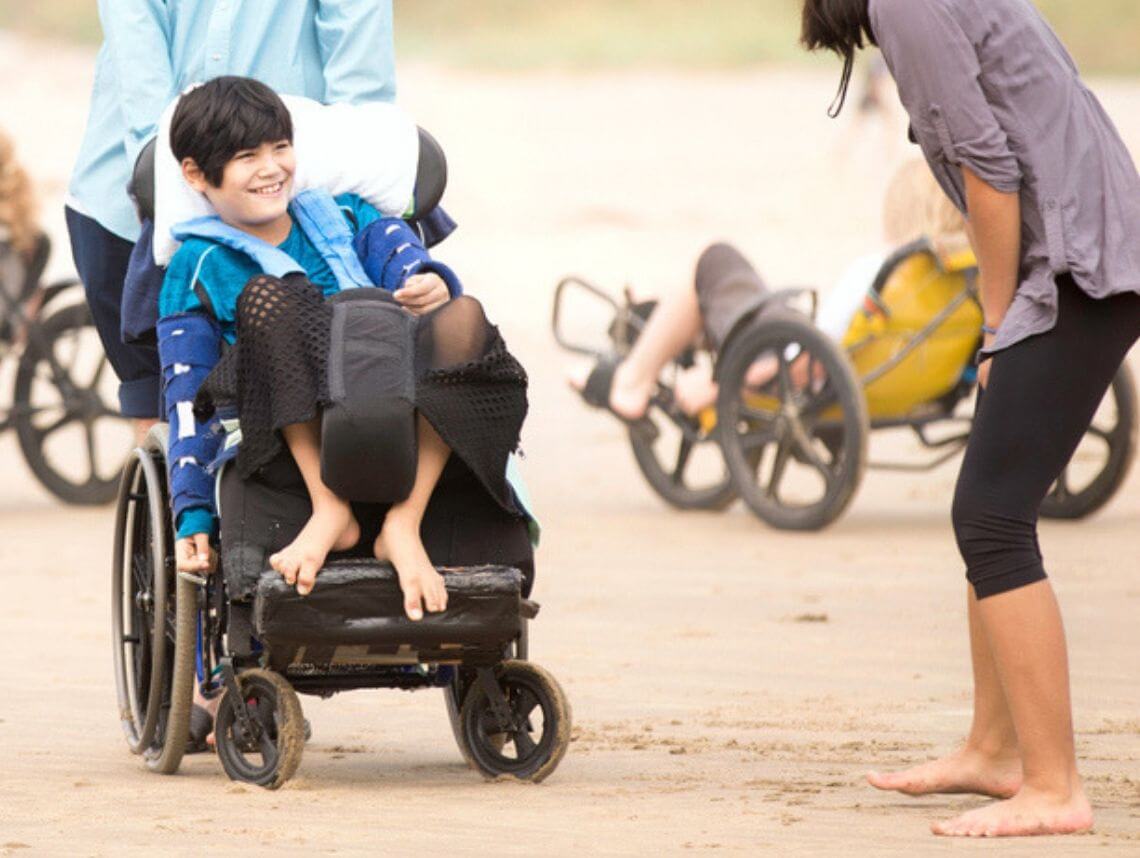Hearing that your child has Muscular Dystrophy can be extremely disconcerting. This is especially so when you’re trying to figure out how to provide the best care while at the same time preparing them to learn to live with the condition and to manage it for the rest of their life.
How will Muscular Dystrophy affect your child’s life? Is there anything you can do to make their life easier?
Caring for a Child with Muscular Dystrophy (MD) at Home
There are several things you can do to make home life easier for a child with Muscular Dystrophy.
1. Learn about your child’s specific type of Muscular Dystrophy
Some types of MD affect children, others affect adults, while a third group affects only boys. Learning about your child’s type of MD will help you to recognize worsening of symptoms or other issues that may come up, so that you’re prepared to provide the care they need. The Muscular Dystrophy Association is a great resource to get you started.
2. Learn the exact dosage of medication needed
Your child’s pediatrician may prescribe different medications. Some of them may be designed to alleviate pain, while others may be intended to slow the progression of the illness. Memorize the dosage instructions and pay attention to how your child reacts to them. If you notice side effects, discuss them with the pediatrician.
3. Engage your child in range of motion exercises
Your child’s physical therapist can show you different types of exercises. It’s important to follow the recommendations of your child’s medical team exclusively, since there are different types of MD as well as ranges of severity. Doing these exercises will help ensure your child’s muscles remain as strong and flexible as possible for as long as can be. This may also help prevent muscle deformities.
4. Gently massage your child’s muscles
In addition to heat therapy, massaging areas affected with MD can help alleviate pain and muscle stiffness.
5. Provide them with a sleeping mask
Certain types of muscular dystrophy can make it difficult for a patient to fully close their eyes. If this is the case with your child, providing a sleeping mask will help them get more restful sleep.
6. Make it easier for them to move around your home
You can do this by replacing the box spring on your child’s bed with a shorter one, replacing doorknobs with lever handles, widening doorways if your child uses a wheelchair, installing a wheelchair accessible shower, and placing their favorite toys, books, and clothing on low shelves that are easy to reach. If you live in a split-level home, move their bedroom to the first floor.
How MD Affects a Child’s Life
Muscular Dystrophy can affect a patient’s sense of independence as well as make them feel isolated when comparing themselves to their peers. For these reasons, it’s good to be aware of aids that may provide more mobility, such as braces, as well as support groups to help them deal with the emotional aspect of living with the condition.
It’s also important to be aware that depending on the severity of the condition, Muscular Dystrophy can also affect the internal organs, which may lead to health complications, such as an inability to swallow food (and thus needing a feeding tube), or difficulty breathing, which could result in the need for a ventilator.
When to Start Home Care for a Child with MD
There are many reasons to consider pediatric home care for a child with Muscular Dystrophy. It allows them to remain at home while undergoing physical, occupational, or speech therapy, keeping them in a familiar, comfortable environment. It also provides parents with assistance or respite, which is essential when a child requires 24/7 care, especially when there are more children in the household, or when parents don’t have the option of skipping work to stay at home with their child.
Contact Us for Assistance
At Sonas Home Health Care, we understand that caring for an ailing loved one can be overwhelming.
If you are considering pediatric home health care services in Florida, contact the caring staff at Sonas Home Health Care. Call today (888) 592-5855.
This blog was reviewed by Jillian Miller BSN, RN — Director of Nursing for Sonas Home Health Care’s Tampa Bay market — for clinical accuracy. Jillian Miller has been a nurse for 16 years — working primarily in pediatrics. She believes the best part of working with the pediatric population is when you see smiles from clients when you first enter the room. She loves seeing the difference you can make in families’ lives while providing the best care possible for them.

